Western Sydney beats the world four years in a row for community impact
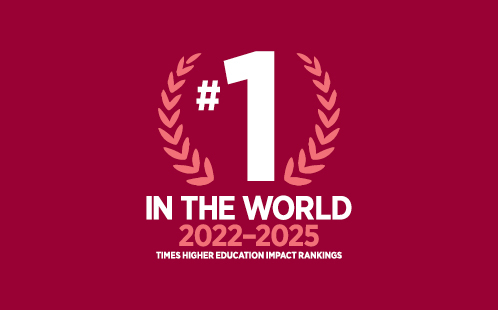
For an unprecedented fourth year in a row, Western Sydney University has outranked 2,300 international universities to be named the world’s best for delivering community impact.
The prestigious global Times Higher Education (THE) Impact Rankings(opens in a new window) singles out the University and Western Sydney community for their ongoing efforts to improve lives, deliver equity and fairness, and safeguard the planet for future generations.
“Like Western Sydney, our University is youthful, diverse, dynamic and entrepreneurial. We reflect our community and we are part of it,’’ said Vice-Chancellor and President, Distinguished Professor George Williams AO.
“These rankings recognise the work we are doing together to take Western Sydney to the next level. We can all be proud of this result.
“Our mission is to ensure our students are successful, our teaching and research have impact, and we are contributing to stronger communities.”
Unlike other rankings, the Impact Rankings measures universities on the practical measures they take to improve lives and deliver outcomes in communities. “Western is showing the world the way,” said Professor Williams.
“Universities around the world are being urged to return to their primary role as public sector organisations delivering public good.
“The Impact Rankings recognise that Western Sydney University is the world’s best at delivering public good in the communities we serve. It’s in our DNA.’’
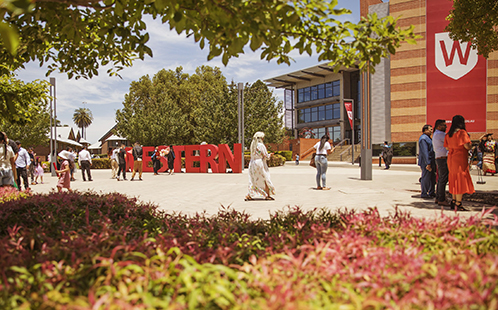
Western Sydney University works in partnership with communities in Western Sydney and globally including in India and its offshore locations in Indonesia and Vietnam to deliver on its commitment to the 17 United Nations’ Sustainable Development Goals (SDGs).
The rankings assess what universities are doing to improve lives based on the SDGs and assess our research, teaching, campus operations, policies and community engagement and outreach. These include climate action, gender equality, ending poverty, providing affordable and clean energy, reducing inequality, industry innovation and producing sustainable cities and communities.
As well as the overall world number one ranking, the University was highly ranked in the following categories:
- 4th in the world for SDG 15 Life on Land
- 7th in the world for SDG 5 Gender Equality
- 8th in the world for SDG 13 Climate Action and SDG 12 Responsible Consumption and Production
- 9th in the world for SDG 17 Partnerships for the Goals, SDG 6 Clean Water and Sanitation and SDG 11 Sustainable Cities and Communities
- 10th in the world for SDG 14 Life Below Water and SDG 7 Affordable and Clean Energy
Our Impact
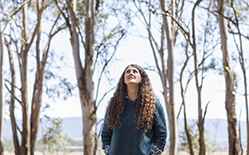
Western Sydney University is committed to protect, restore and promote the sustainable use of terrestrial ecosystems, sustainably manage forests, combat desertification, and halt and reverse land degradation and halt biodiversity loss.
15,000 new trees have also been planted at Hawkesbury in partnership with Greater Sydney Landcare, with a focus on restoring nature.
Researchers at Western’s Hawkesbury Institute for the Environment have been developing datasets and guidelines that will help secure a greener, healthier and more sustainable urban treescape.
As the climate heats up, urban forests are becoming more vital but also more vulnerable – our researchers are working to help them survive, helping city planners choose the best trees for their urban forests, and developed a new national standard for saplings.
Western Sydney University also works with local communities on citizen science projects and conservation education programs, recently partnering with school students from Presbyterian Ladies’ College in Sydney to release eastern long necked turtle hatchlings into the wild – turtles the school successfully incubated.
As the world reflects on environmental challenges, our researchers have found that climate change is drying out Australia’s frogs and causing population declines.
Meanwhile, researchers from the School of Science are leading a wombat conservation and road safety project, and have also developed a new training course to treat wombats afflicted with sarcoptic mange in the field, enhancing conservation efforts for the species.
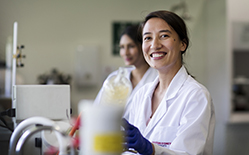
In 2024, Western Sydney University responded to the rise in global conflict and displacement by offering a personalised entry point to the University and higher education, known as the People Fleeing Conflict Program to support people seeking refuge in Australia.
Our research has also focused on tackling inequalities that persist across Western Sydney.
The University’s Centre for Western Sydney has found the lack of accessibility and affordability of childcare has made most of Western Sydney a care ‘desert’, which impacts on parents’ ability to fully participate in the workforce.
The research revealed participation in the workforce for women in Western Sydney is 65 per cent, compared to 75 per cent for the rest of Sydney.
Researchers from our School of Nursing and Midwifery led Australia’s first study on obstetric violence which revealed one in ten Australian women experienced obstetric violence and birth trauma. This study, and the rights of women to respectful maternity care, was the catalyst of the NSW Parliamentary Inquiry into Birth Trauma.
Western Sydney University is a national leader when it comes to increasing higher education participation, particularly among those sections of the community that are traditionally under-represented.
Western Sydney University draws students from more than 160 different countries and cultures. More than half of our students are the first in their family to attend university and represent a higher than sector average low-socioeconomic circumstances.
Our region also has the most significant urban populations of Aboriginal and Torres Strait Islander peoples, and we actively work to support their aspirations.
We celebrate all of the diverse and rich cultural communities that give our campuses their energy and vibrancy, and strive to create an inclusive, safe and respectful place for study and work.
Our Ally Network also has over 250 staff and student volunteers from across the University committed to creating an inclusive and respectful culture for LGBTIQ community members.
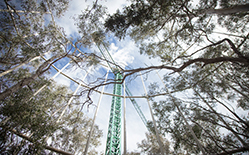
Experts from Western Sydney University continue their world leading research tackling climate change and its impacts.
Researchers from Western’s Hawkesbury Institute for the Environment use computer modelling to understand how ecosystems respond to climate change, and the role that terrestrial ecosystems play within the carbon cycle.
Our researchers also recently discovered drought-fighting soil bacteria present in the root systems of drought affected wheat plants can call on eco-friendly soil microbes to survive, providing new pathways to develop extreme weather resistant crops.
City of Sydney has partnered with urban heat experts from Western Sydney University to map the region’s microclimates, through the most detailed analysis of urban heat ever carried out in the area.
The new microclimate report found that suburbs near the harbour are up to 15 degrees cooler than those in the City of Sydney’s South during, during extreme heat.
Our EucFACE – Eucalyptus Free Air Carbon Dioxide Enrichment Experiment – is Australia’s largest climate change facility, located at our Hawkesbury campus within the Cumberland Plain Forest.
This innovative experiment aims to predict decades in advance the effects of exposure to rising CO2 levels on our unique native forest ecosystems.
EucFACE exposes large areas of native Cumberland Plain Forest to elevated CO2 at around 550 ppm which is what we expect to reach by 2050. The level of CO2 in the air is currently around 400 ppm and rising.
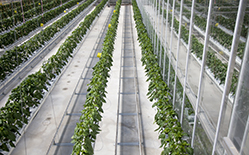
Western Sydney University is committed to the UN Sustainable Development Goals through our teaching, research, campus operations and outreach. Western’s decadal strategy, Sustainability and Resilience 2030, is our roadmap towards a more resilient, sustainable and prosperous future that outlines more than 50 long term actions and commitments to achieve by 2030.
We are also proud that by utilising innovative waste management practices, that 89 per cent of campus waste is diverted away from landfill.
For example, our Teaching and Research Technical Services – Advanced Manufacturing team have diverted an estimated 50 kilograms of single-use plastic waste from landfill and turned it into other products.
By repurposing discarded engineering student projects, MakerSpace offcuts, and uncontaminated syringe bodies from the School of Nursing and Midwifery’s clinical practicals, the team has developed a variety of innovative prototypes.
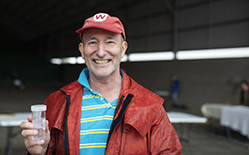
On a local level, the University has a 20-year commitment to water reuse and research under the Hawkesbury Recycling Scheme, with an ambitious goal to see 60 per cent of water use coming from non-potable sources on all campuses by 2026.
Internationally, our involvement in the Australian Water Partnership enables water experts to enhance the sustainable management of water in the Indo-Pacific and beyond. Leading the Australia India Water Centre, the University has also empowered regional Indian communities to be able to monitor and manage groundwater at a village level.
Recycled water and harvested stormwater are used extensively on Western’s Hawkesbury campus for a range of uses, along with rainwater being used for toilet flushing and irrigation in some of the buildings in Penrith, Parramatta, and Campbelltown campuses.
Our researchers are engaged in projects protecting and restoring water related ecosystems including rivers, lakes and waterways.
Funded by the Australian Government’s Urban Rivers and Catchments program, Western Sydney University in collaboration with the Hawkesbury-Nepean Waterkeeper Alliance, is working to protect our urban platypus populations.
The Resilient Rivers for Resilient Hawkesbury Platypus Populations Project will establish a network of platypus parks along the Hawkesbury Nepean River.
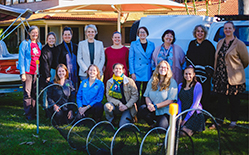
- $1 million investment from the Australian Government to create connected and healthy riparian habitat within the Hawkesbury-Nepean catchment
- 3 platypus parks forming a connected network of engaged private landholders and public estates
- 15 external stakeholders working together with the University to guide meaningful impact
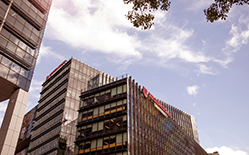
Our campus network is a sector leader for the number of green-star building projects and campus precincts.
Four of our campus buildings are rated 6-star – including the newest $340 million high-rise Bankstown City campus. These projects incorporate the very best of contemporary teaching and learning design, accessible public transport and green-star rated sustainability features, including water management, energy efficiency and environmental impact reduction.
Our world-leading research is also tackling issues such as urban heat, housing sustainability and affordability, and climate resilience – challenges that particularly impact the communities of our own Western Sydney region.
For example, University researchers are leading an expert team on a multi-award-winning transdisciplinary research project that addresses climate change impacts, specifically urban overheating. A partnership between the NSW Government, several universities and private industry, SIMPaCT (Smart Irrigation Management for Parks and Cool Towns) uses artificial intelligence and smart sensing technology to cool Bicentennial Park at Sydney Olympic Park for residents and visitors.
While on a global stage our researchers are having a profound impact working to address issues such as food and water security.
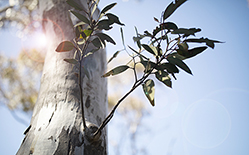
In 2024, the integration of electric vehicle (EV) chargers with solar carparks were completed as part of Western’s operational initiatives. EV charging infrastructure is now established at four campuses including Hawkesbury, Kingswood, Campbelltown and Parramatta South, with fast-charge units accessible for all staff and students using EVs.
These new installations have increased our total solar generation on campus by 39 per cent.
Western purchases 100 per cent of our electricity from recognised renewable sources, bringing our carbon electricity footprint (Scope 2 emissions under the Climate Active Certification) to zero this year. The University is on track for our aim to be Climate Positive by 2029.
Western Sydney University’s student lead Solar Car team, supported by the School of Engineering, Design and Built Environment, share their passion for sustainability and innovation when they visit and meet with schools and community members throughout regional roadshows.
Producing six cars over a decade, the team became the first international team to win the American Solar Challenge in 2018 and broke the record in 2019 for the lightest solar-powered vehicle ever to race weighing only 116.8 kilograms.
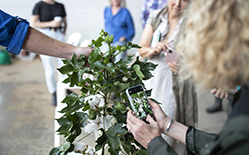
In late 2024, Western Sydney University pledged to become Nature Positive by 2029, joining the global Nature Positive Universities network, an initiative led by the United Nations and the University of Oxford.
Joining the global Nature Positive Universities network builds on the University’s Race to Zero commitment to restore ecosystems we all rely on.
As part of our Nature Positive Pledge, we developed baseline metrics and strategies that includes citizen science engagement, and mapping of both ecological communities and landscaping across our campuses such us:
- 19,208 trees identified and mapped within the built environment of our campuses
- 1,899 hours invested into invasive species management on our campuses
- 413 hectares of protected habitat across our campuses, both endangered and critically endangered ecological communities
- 365 flora and fauna species identified by our community in our university-wide campus BioBlitz
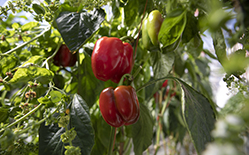
The Western Pantry initiative provides students with access to fresh and healthy produce, pantry staples, and hygiene items, free of cost.
Since its launch in July 2024, the Western Pantry at Kingswood campus and pop-up sites have recorded over 3,000 student visits, demonstrating its significant impact on students.
The fresh produce is sustainably sourced from local farms, market gardens, food rescue organisations, and our own greenhouse production on Hawkesbury campus.
This initiative builds on other food security programs offered to our students including community lunches and dinners to combat isolation, and free student breakfasts.
- 23,000 free community dinners and breakfasts served to improve community cohesion and food security
- 3,400 Western Pantry and pop-up pantry visits by students since July 2024
- 1 tonne of vegetables grown on campus for horticultural research by the National Vegetable Protected Cropping Centre, including the Western Pantry
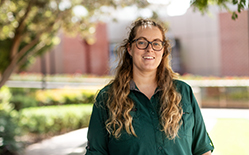
At Western, students from varying disciplines and levels can undertake a degree specialisations that support transformative teaching for the SDGs.
Education for Sustainability (EfS) puts emphasis on the interrelationships between theory and practice; local and global scales and present and future. It has a a global citizenship component that requires a critical evaluation of environment and social justice issues. Our approach through EfS, and in response to our ‘Sustainability’ Graduate Attribute, is to incorporate sustainability competencies that focus on what a graduate can do as much as what they learn, and to develop students and graduates who can critically envision better futures and take action towards it.
For example, the Communicating for Sustainability subject, open to all undergraduates, challenges students to become sustainability champions through project-based learning and collaboration with local partners.
Prospective students can learn more about why Western Sydney University has been recognised as first in the world, four years in a row, at Open Day, Sunday 6 July 2025. Register here(opens in a new window).
ENDS
18 June 2025
Latest News
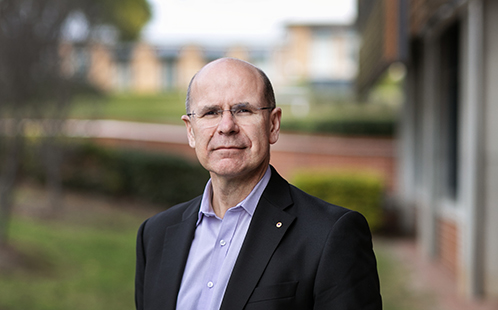
ABC RN transcript: Vice-Chancellor Professor George Williams discusses higher education sector, student support, and the impact of AI
The following is a transcript of an interview that aired on ABC Radio National Saturday Extra between presenter, Nick Bryant and Vice-Chancellor, Distinguished Professor George Williams AO.
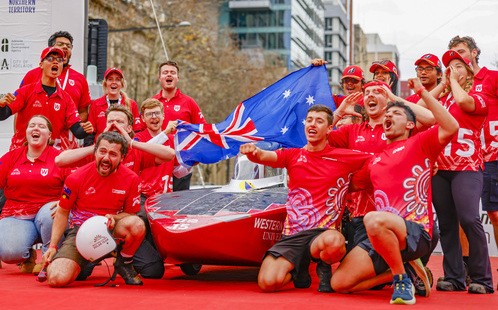
Western Sydney University are the number one Australian solar car team at the 2025 Bridgestone World Solar Challenge
Western Sydney Solar Car team has crossed the finish line placing preliminarily sixth in the world overall, and the number one Australian team in the world’s most prestigious solar car challenge.
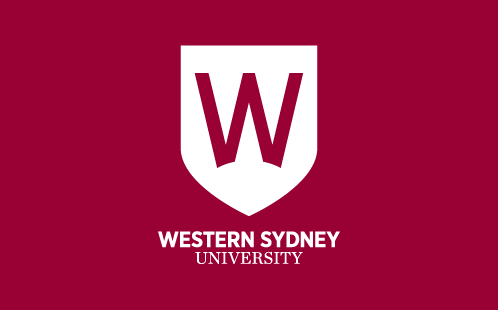
Western Sydney University Statement on Cyber Incidents
Western Sydney University has issued an update to its community following confirmation that previously stolen personal information was published online, including on the dark web.
Mobile options:

